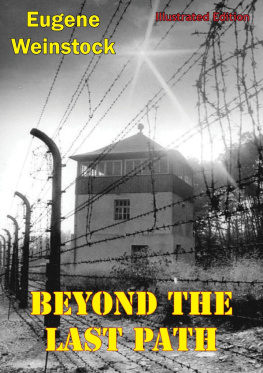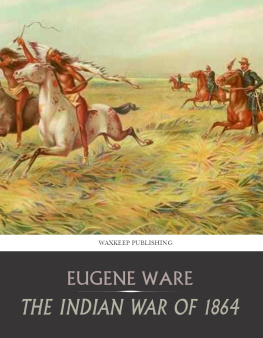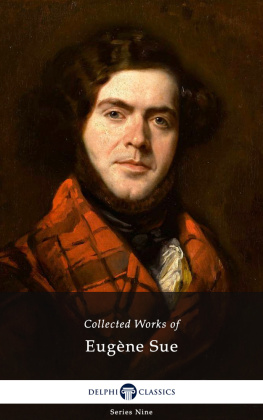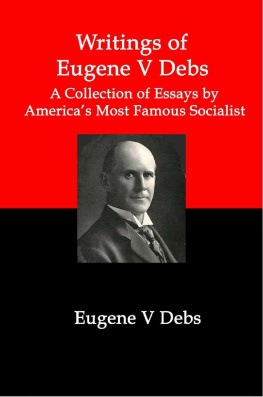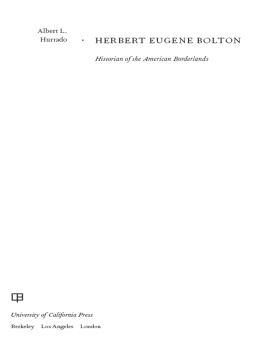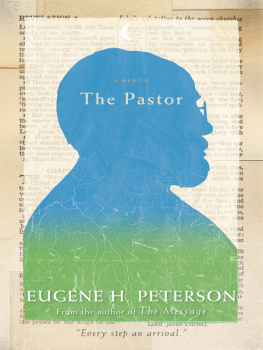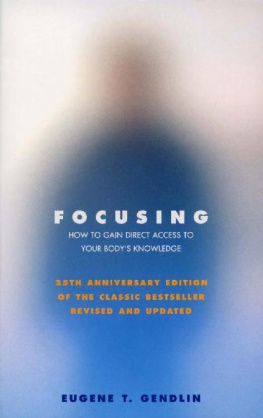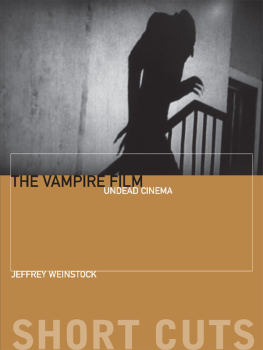Eugene Weinstock - Beyond the Last Path
Here you can read online Eugene Weinstock - Beyond the Last Path full text of the book (entire story) in english for free. Download pdf and epub, get meaning, cover and reviews about this ebook. year: 2015, publisher: Normanby Press, genre: Non-fiction. Description of the work, (preface) as well as reviews are available. Best literature library LitArk.com created for fans of good reading and offers a wide selection of genres:
Romance novel
Science fiction
Adventure
Detective
Science
History
Home and family
Prose
Art
Politics
Computer
Non-fiction
Religion
Business
Children
Humor
Choose a favorite category and find really read worthwhile books. Enjoy immersion in the world of imagination, feel the emotions of the characters or learn something new for yourself, make an fascinating discovery.
- Book:Beyond the Last Path
- Author:
- Publisher:Normanby Press
- Genre:
- Year:2015
- Rating:5 / 5
- Favourites:Add to favourites
- Your mark:
- 100
- 1
- 2
- 3
- 4
- 5
Beyond the Last Path: summary, description and annotation
We offer to read an annotation, description, summary or preface (depends on what the author of the book "Beyond the Last Path" wrote himself). If you haven't found the necessary information about the book — write in the comments, we will try to find it.
Beyond the Last Path — read online for free the complete book (whole text) full work
Below is the text of the book, divided by pages. System saving the place of the last page read, allows you to conveniently read the book "Beyond the Last Path" online for free, without having to search again every time where you left off. Put a bookmark, and you can go to the page where you finished reading at any time.
Font size:
Interval:
Bookmark:


This edition is published by PICKLE PARTNERS PUBLISHINGwww.picklepartnerspublishing.com
To join our mailing list for new titles or for issues with our books picklepublishing@gmail.com
Or on Facebook
Text originally published in 1947 under the same title.
Pickle Partners Publishing 2014, all rights reserved. No part of this publication may be reproduced, stored in a retrieval system or transmitted by any means, electrical, mechanical or otherwise without the written permission of the copyright holder.
Publishers Note
Although in most cases we have retained the Authors original spelling and grammar to authentically reproduce the work of the Author and the original intent of such material, some additional notes and clarifications have been added for the modern readers benefit.
We have also made every effort to include all maps and illustrations of the original edition the limitations of formatting do not allow of including larger maps, we will upload as many of these maps as possible.
BEYOND THE LAST PATH
By
Eugene Weinstock
WITH A FOREWORD BY EMIL LENGYEL
Contents
This book is dedicated to the victims and survivors of
BUCHENWALD
This book is a product of my experiences in Buchenwald. Without those experiences, I, a cabinet maker, never would have dreamt of writing a book. I am indebted to all my comrades in Buchenwald who revealed to me a depth of human feeling and a strength of spirit I did not know existed before my meeting with them.
What I really tried to tell in this book is something of their courage and their kindness. Where I failed, the fault is entirely my own; where I succeeded, the credit is solely theirs.
Since I am not a professional writer, I am indebted first of all to Joseph Szebenyei for the preparation and the editing of the Hungarian version of this book; and to Clara Ryan for its translation into English. The credit for the final re-writing and editing of the book as presented here goes to the young novelist, Ira Wallach.
This is the story of No. 22483, who had been shipped from Belgium to Buchenwald. This is an account of what No. 22483 saw and felt during his calvary from Antwerp to the Malin distribution camp in France and from there to the extermination camp of Buchenwald.
To say that this book contains the scenes of a twentieth-century Inferno may sound commonplace. Yet, every page of this book reminds one of Dantes Inferno, with one exception: the Inferno the author writes about consumed the lives not of the sinful whom divine justice cast into the immortality of suffering.
This Inferno was thronged by millions, many of whom were babies and little children, mothers and young women who had hoped to become mothers. It was thronged with people who deserved their fates because they were men in the sense that God meant them to be. They were in Inferno because they were strong men and brave, the real heroes of our days. They were doomed because the Nazi super-race set up a different scale of values which regarded heroism as the greatest of sins and considered depravity the greatest of virtues. Reading this book one feels that the titanic Dante himself would have been staggered by the demented criminality the judges of the just displayed.
This is the story of No. 22483 of Buchenwald, one of the millions who were doomed and one of the few who escaped. The spirit of many of the survivors was broken, but not the spirit of this prisoner. He has turned his experiences in Inferno into a work of abiding art. A mere number, he had the strength to remain a man, an artist of the word, observing his captors, his fellow-prisoners, life in the shadow of death. He gives us masterpieces of descriptive writing about persons, such as Anyu, the guardian angel of the Malin camp, and about events, such as the appearance of the music band, playing gay tunes, a hundred paces from the crematorium. Throughout, the writing is poignant, vibrant with humanity, a cry de profundis and a vow that it must never happen again. This book should be long remembered.
Never say, when the skies are heavy-laden,
That you are treading the last path
Because, just as the skies will one day clear,
It will come, this longed-for hour
As with the rumble-beat of a drum...And we will be here!
From a Concentration Camp Song
BEYOND THE LAST PATH
IN THE SCALE of human feeling nothing is more terrible than to watch your childs anguish. A child fears death more than an adult. My six-year-old son was no different from other children in this. His terror weighed more heavily upon my heart than my own dread of Nazi airmen who were machine-gunning the escaping thousands.
I remember an air raid during which Henri said to me, Lie on top of me, Papa, so the flyer cant see me!
I realized then how a child thinks. It is inconceivable that anything can happen to his father. His father is eternal, indestructible. A child fears death but he believes that adults are too strong to die.
How many times did we see the grinning faces of young German airmen as they swooped down upon the road? Theirs was not irresponsible cruelty. They were carrying out a tactical plan. The Germans needed the roads. We civilians cluttered these roads. Our bodies blocked their trucks and tanks, their guns, their supplies. Therefore they shot us.
But when we left the roads the airmen, forgetting tactics for the sake of sport, sought us out in the woods or the fields. They hunted us as people hunt the fox or the rabbit.
With twelve million others we shared the niceties of total war.
I was a Hungarian in Belgium. In the madness of those days it was quite logical, in fact it was normal, for a man and his child to be wandering in a strange country.
The Belgian people were without illusions. Many had survived a German occupation during World War I, but it was not long before they thought of the Kaiser as a saviour in comparison to the Nazis. They knew how idle was Hitlers promise to respect Belgian and Dutch neutrality. When Poland fell Belgium became a death cell in which an entire people awaited the execution of sentence.
It was not a long wait. Six months of Sitzkrieg on the Western Front ended. On Friday, May 10, 1940, without the unnecessary verbosity of a declaration of war, bombers leveled half the country, and the German Ambassador, with straight face and well-tailored dignity, informed Belgian Foreign Minister Spaak that the German government, with this military action, desires to defend Belgium from attack by the French and the English, and to ensure Belgian independence.
My son and I hid from the bombs and the flaming buildings in the ancient city of Antwerp, our independence assured.
In the morning the bombing stopped. The Belgian Government issued a proclamation, describing the invasion and calling up men between the ages of sixteen and forty-two for military service. The same proclamation ordered the internment of Austrian and German nationals, including refugee Jews from these countries. The Jews were sent to France.
Overnight there was a new ruler in Belgiumpanic. Thousands fled. Their mass departure was without plan or leadership. Their haven was England but since they had no means of getting there, they fled toward the French border, the sea, Ostend. Crowds of terrified civilians clogged the railway stations or massed on the roads leading out of Antwerp where they made a standing target for German machine guns.
Next pageFont size:
Interval:
Bookmark:
Similar books «Beyond the Last Path»
Look at similar books to Beyond the Last Path. We have selected literature similar in name and meaning in the hope of providing readers with more options to find new, interesting, not yet read works.
Discussion, reviews of the book Beyond the Last Path and just readers' own opinions. Leave your comments, write what you think about the work, its meaning or the main characters. Specify what exactly you liked and what you didn't like, and why you think so.

